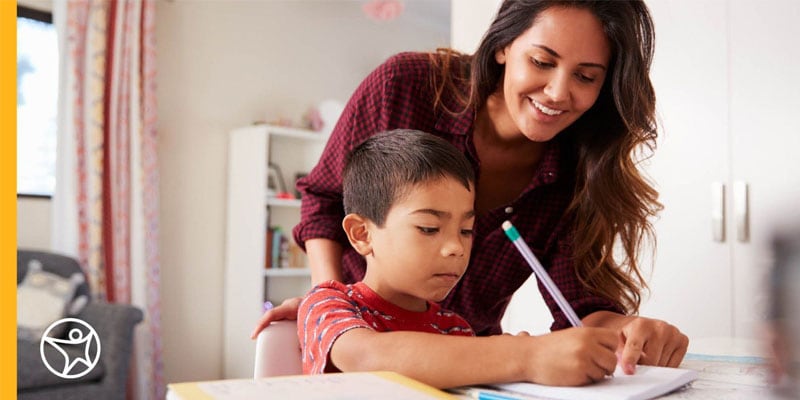Connections Academy vs. Other Online Schools
by Connections Academy
byConnections Academy
4 min to readThe lingering effects of the COVID-19 pandemic have trickled into nearly every part of our lives. While we’ve adapted to many aspects of this “new normal,” one area of particular concern is learning loss due to COVID among students in K-12 schools.
Learning loss is not a new concept in education; it describes any decrease in knowledge or progress that happens when a student’s schooling is interrupted for a period of time. Just how much learning loss occurs during disruptions varies greatly from student to student and depends on a variety of internal and external factors.
For years, the most significant source of learning loss in K-12 students has been the “summer slide,” the term used to refer to the academic skills that students tend to lose over their two-month summer break from school. But concern over COVID learning loss has overshadowed much of the attention that was once given to the summer slide. It is one of the many pandemic effects on students that has parents wondering how to help their children navigate a post-pandemic world.

Supporting a student who has experienced pandemic-related learning loss can be complicated, but there are some steps you can take to help your child through the difficult times:
Communicate with their teachers. Reach out to your child’s teachers and ask whether there’s anything you can do at home to reinforce the concepts they’re learning in class. Hearing the information from another source, without the distractions that can occur during a normal school day, can be beneficial for students.
Support their social-emotional health. When a young person is in a state of anxiety, they cannot learn effectively, according to the Kennedy Krieger Institute. It’s important to talk with your child frequently about how they are feeling and help them work through feelings of anxiety before attempting to get them to do schoolwork.
Stay calm. Children often take their emotional cues from the adults around them, which means that if you’re showing signs of anxiety or anger, then your child might start to feel the same way. Try to maintain an optimistic attitude when speaking with your child, especially about their academics.
These strategies can provide quite a bit of benefit for students, but what if your child needs more support to recover from COVID-19 impacts on education? For these students, online school can be a great solution.

Many students with knowledge gaps due to the pandemic could benefit from supplemental learning opportunities, but it can be tricky to work these sessions into a young person’s already packed schedule.
Children who attend brick-and-mortar schools are typically in class from 7:00 am until about 3:00 pm, which means they don’t have a lot of wiggle room in their schedules when it comes to accessing tutoring or other supplemental learning options. When you combine that with the time commitment of the extracurricular activities your child is involved in, it might seem impossible to find the time to get them the support they need to overcome pandemic-related learning challenges.
Online school is one way to insert more flexibility into your child’s schedule so they can take advantage of supplemental learning opportunities. Many parents wonder how online school helps balance academics and extracurriculars. It’s largely because online learning utilizes a combination of synchronous and asynchronous instruction, meaning you and your child have more control over when their work gets done, which frees up time during the day for tutoring and other learning support services.
In addition to increased flexibility, online school provides students with more frequent opportunities to work with their instructors one-on-one than they typically would have in a traditional school setting. This is one of the ways online teachers help students succeed because it provides the dual benefit of more individualized instruction and can create a better bond between student and teacher, both of which have been proven to promote more effective learning.
Each child is different, and what works well for some students may not work well for others. As a parent, the best course of action is to arm yourself with information about all the options available to your child.
Considering switching your child to an online schooling program? Learn more about online school versus traditional school and discover the answers to common questions about online learning.
by Connections Academy
by Valerie Kirk
by Valerie Kirk
